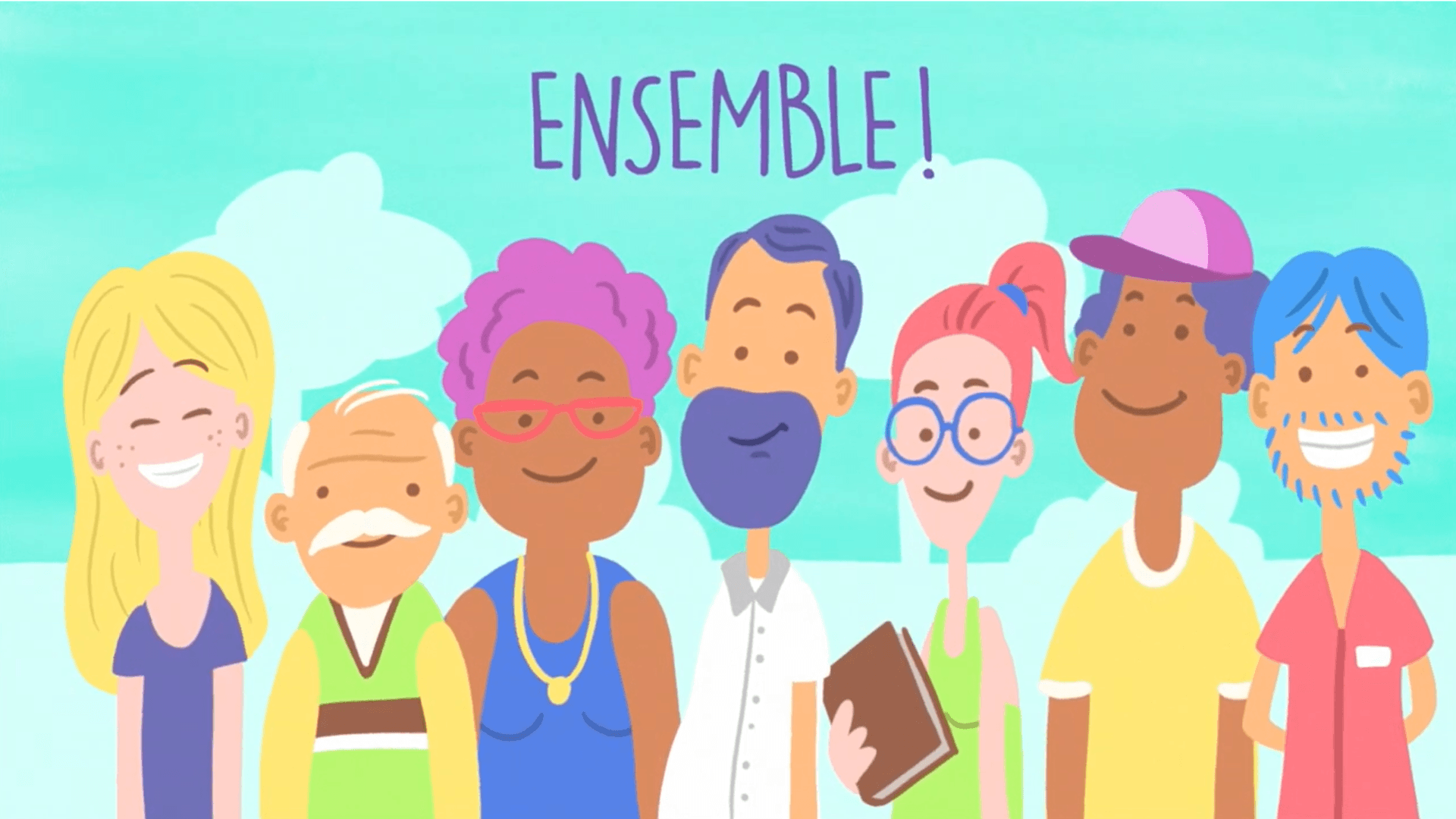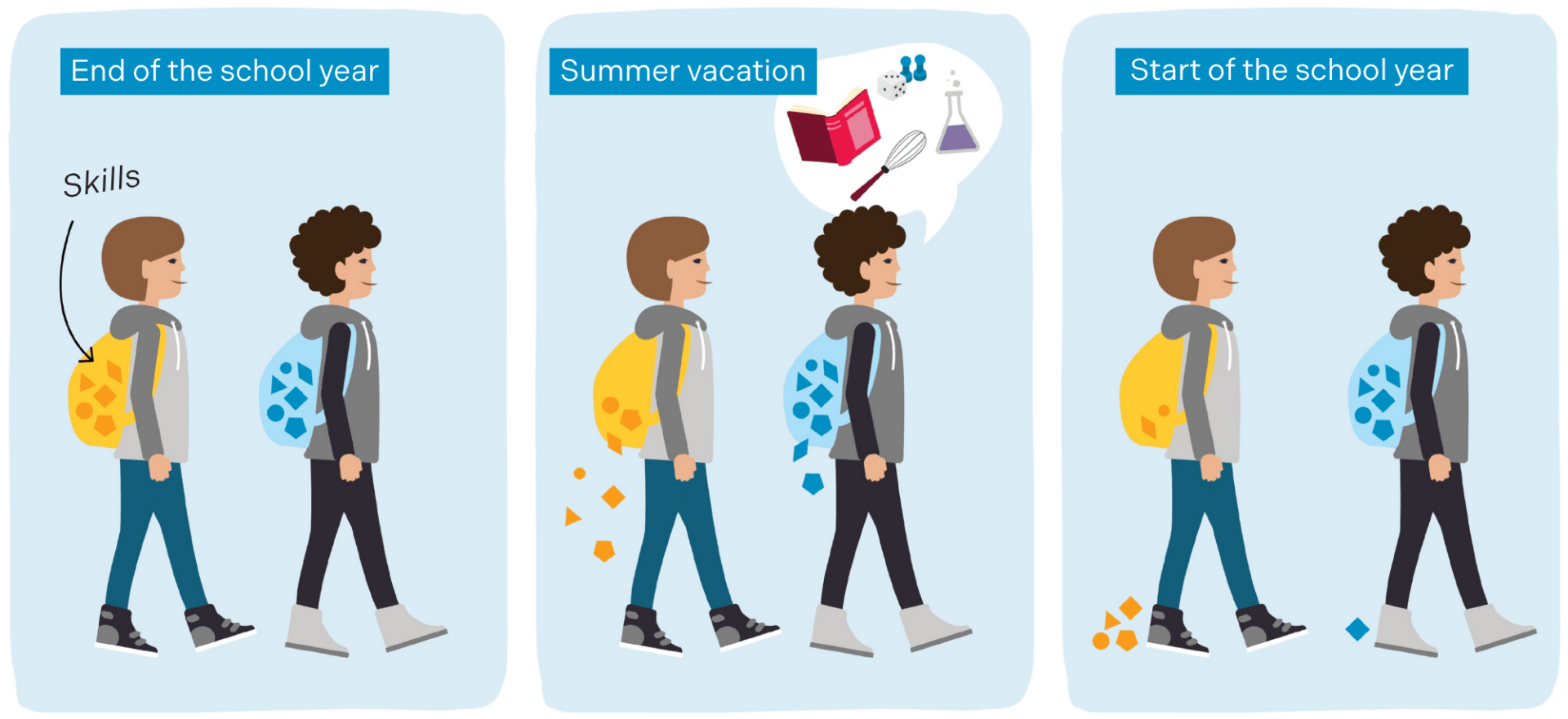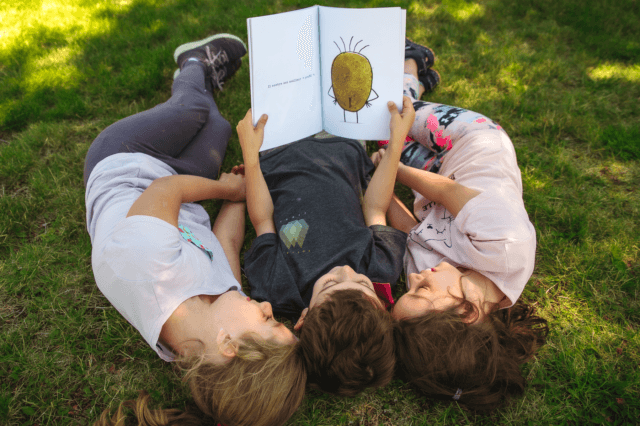
What is the “summer slide”?
The summer vacation often leads to a kind of “learning void“ that we call the “summer slide”. This phenomenon takes its name from the loss of academic knowledge that students often go through during school interruptions.
According to studies, this phenomenon can have a significant impact as soon as the start of the school year and can even influence long-term school progress. Inequalities related to education, which can be observed during the school year, vary depending on socio-economic contexts, and tend to increase during the summer months.
However, it is possible to help students maintain their knowledge during the summer with games that stimulate their literacy and numeracy skills.

Image source: Réseau québécois pour la réussite éducative (RQRE)
Which students are more at risk?
Some students go through a bigger loss of knowledge than others during the summer.
Special-needs students
Those who don’t have French as a first language
Students who have access to fewer resources and less stimulating activities during the summer

Courses of action
Activities to minimize the summer slide
On the way to a winning strategy
Main objective when acting to lessen the summer slide:
Have more students and families exposed to significant, fun activities, out of the school context.
How to do it?
- By enabling conditions that have a positive impact regarding school success, school perseverance and the social development of students during the summer
- By collaborating with existing initiatives
- By considering the regional and local contexts
* Some students’ situations can mean that they need a more structured educational support during the long break.
However, integrating literacy and numeracy activities in the daily life of children during the summer can help mitigate the effects of the summer slide.
For day camps
Visit the “Lit de camp” section! You will find many tools to help you incorporate literacy in your regular activities.
Read through “How can day camps help mitigate the summer slide“, produced by the Centre de transfert pour la réussite éducative du Québec (CTREQ), and the Réseau québécois pour la réussite éducative (RQRE).
Download the document (French only)
Expected results of actions taken to lessen the impact of the summer slide
- More students and families will have been exposed to significant literacy and numeracy activities, among others
- The activity offering in existing camps will have been increased
- The needs of more vulnerable students will have been considered
- Innovative strategies will have been implemented to improve the services in place
- The various stakeholders’ ability to act to lessen the impact of the summer slide will have been improved, and will have a structuring effect
- The activity offering variety will have been increased on the social skills and self-esteem aspects
- The public will have a better understanding of the issues related to the summer slide, and the strategies that can help mitigate it

Reach families


Comment est-il possible de joindre les familles difficiles d’accès ?
How do we get to difficult-to-reach families?
The context of being in a vulnerable situation has an impact on children’s cognitive and psychosocial development. They will be more likely to suffer from learning disabilities, social adaptation difficulties and behavioural problems, more likely to have a hard time in school, and more at risk of dropping out of school, of having drug addiction and criminality problems, and eventually, chronic health issues.
Read “Les familles vulnérables” to:
Download the document (French only)
Research from François Lagarde and Marie Gendron
As observed by Lagarde and Gendron, we realize that more often than not, “these parents are not hard to reach, we’re the ones who are having a hard time reaching them”.
Using the conclusions of their research, here are 6 things we should consider to better reach families in a vulnerable context:
The authors, Lagarde and Gendron, conclude as such:
“In summary, they are looking for hope and help.”
Download the document (French only)
Simple writing
Communicate more efficiently by using “simple writing” techniques:
Find tips and tricks to simplify, adapt and optimize your communications:
***Page in French only for the moment
Visit the “Simple writing section”